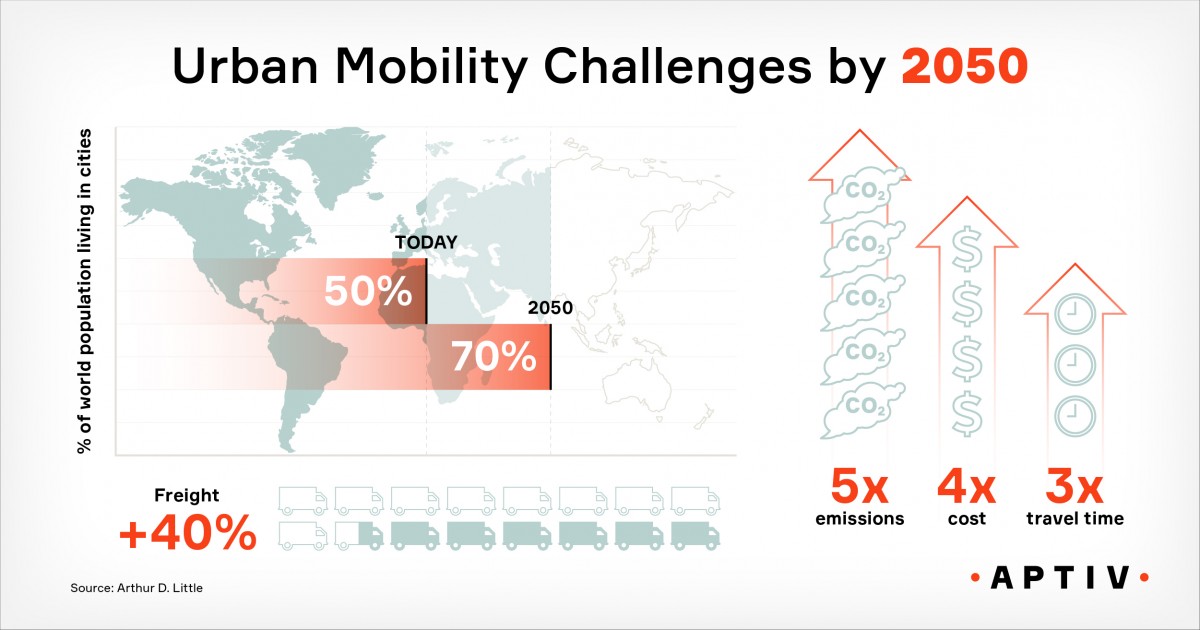Today’s cities face massive challenges in improving mobility. Just speak to any city mayor, transit official or city planner and they will tell you all the stumbling blocks they face regarding safety, congestion and accessibility. And that is before they have even considered environmental
concerns. There is no denying that these challenges will only intensify as urban populations are predicted to increase to a staggering 70 percent of the global population by 2050.
With this expected surge in population growth in cities, by 2050 we predict that congestion and therefore commute times will increase threefold, costs of transportation will increase fourfold, and emissions will rise to five times the current levels. A sensible response would be to move away from the concept of a traditional city towards a smart(er) city: one in which connectivity and mobility considerations take centre stage.
There are a number of steps that need to be taken to ensure our cities continue to remain liveable: empowering cities to come up with innovative solutions, offering financial support at national level and embracing new technologies that are helping to evolve concepts of mobility. Autonomous vehicles can play a key role in addressing current challenges to develop smarter and safer cities.
Recent studies show that autonomous technologies have the ability to cut urban travel time by a third and reduce greenhouse emissions by two thirds. That includes almost 30 percent less vehicles in already crowded cities. The growing need for parking spaces would also reduce significantly by more than 40 percent. While it may seem that autonomous vehicles are still far from becoming a reality, the truth is they are already on our roads today. In Las Vegas, for example, we already have a mobility fleet of more than 30 autonomous cars providing on-demand taxi services in cooperation with Lyft. In the near future, mobility concepts like this could play a vital role in helping to keep our cities moving.
Autonomous vehicles offer so much more than just mobility benefits. Perhaps the most striking and valuable impact they can have is on safety. Traffic accidents can be reduced by almost 90 percent by using driverless cars, significantly improving the safety of our roads. It is for this reason that progressive cities are planning for connected and autonomous vehicles by deploying upgrades including vehicle-to-infrastructure technologies and smart traffic signals.
With urbanisation predicted to move into overdrive over the next decade, we need to prepare for this unprecedented pace of growth by developing innovative solutions, embracing new technologies and deploying them to keep roads moving and safe. These are just a few of the reasons why autonomous stakeholders need to focus on working with cities to understand the challenges and how autonomous technology can integrate and adapt to a city. Cities that navigate these mobility challenges best will be the ones who can provide an enhanced quality of life for their inhabitants, and as a result, become a more desirable place to live, attracting more residents, capital, jobs and opportunities to build smarter cities. Again: Autonomous cars are a key enabler for the shift from traditional cities to smart cities. A seamless integration of driverless cars into the city infrastructure is required to leverage the true benefits of this cultural change, allowing on-demand mobility services being available for everyone and everywhere.




